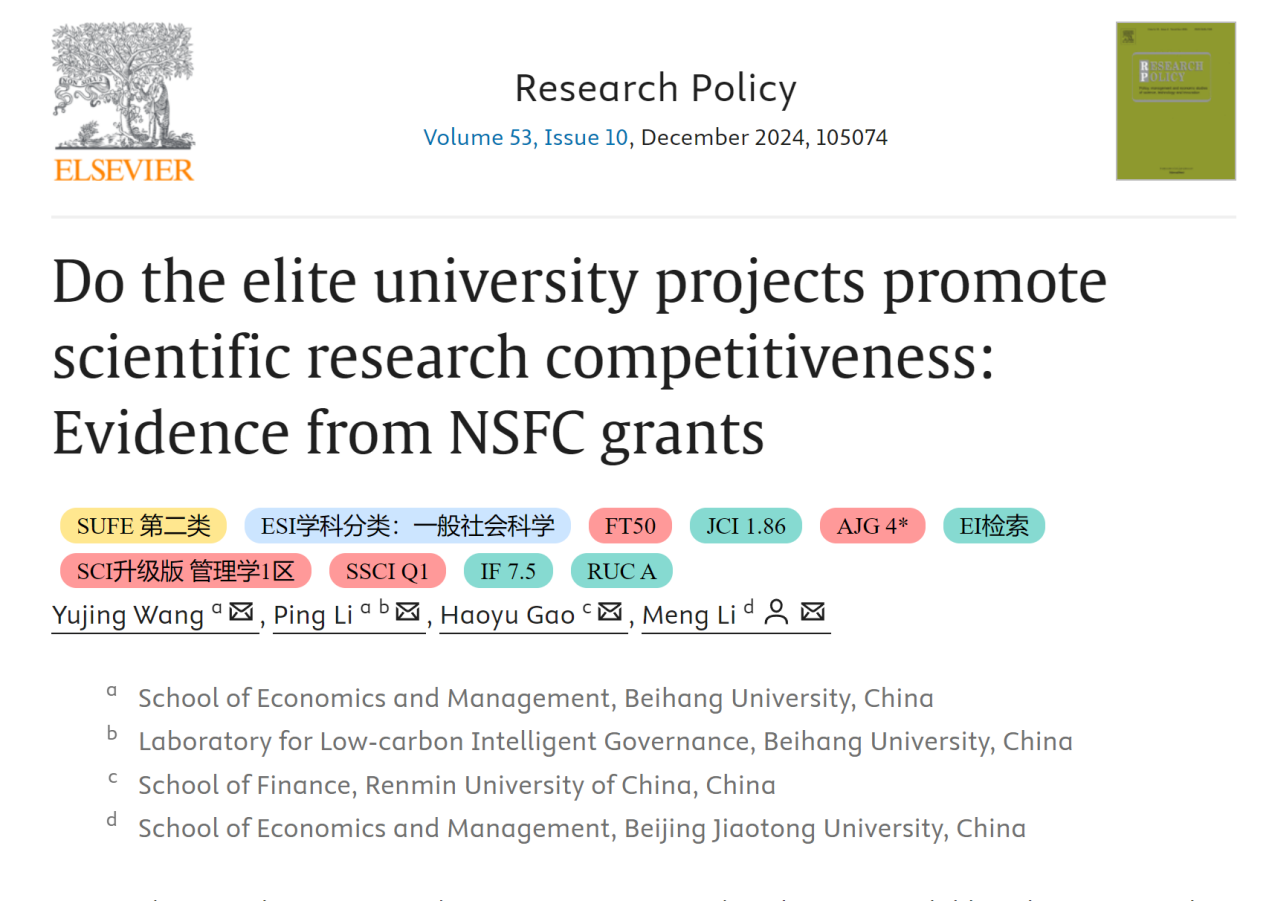Recently, the research paper “Do the elite university projects promote scientific research competitiveness: Evidence from NSFC grants” of Professor Li Ping’s team of our college was published in the FT50 journal “Research Policy”, with School of Economics and Management, Beihang University as the first author unit.

This paper contributes to the causal effects of the elite university project on academic productivity, utilizing a comprehensive dataset of research grants from the National Natural Science Foundation of China (NSFC). Using difference-in-differences estimation to identify the treatment effect of being listed in the 211 Project (A widely implemented elite university project in China), this paper finds evidence of a substantial improvement in scientific research competitiveness in these universities (increased number of NSFC projects and funding amounts). Based on the Factor Endowment Theory and Human Capital Theory, the innovation improvement effect primarily comes from the increased human capital accumulation and government funding, and the enhancement of academic reputation. The study also reveals that the “211 Project” leads to the concentration of resources, which has widened the gap between 211 and non-211 Universities. In addition, after becoming a 985 University, the scientific research competitiveness is approximately 20% higher than that of a 211 University.